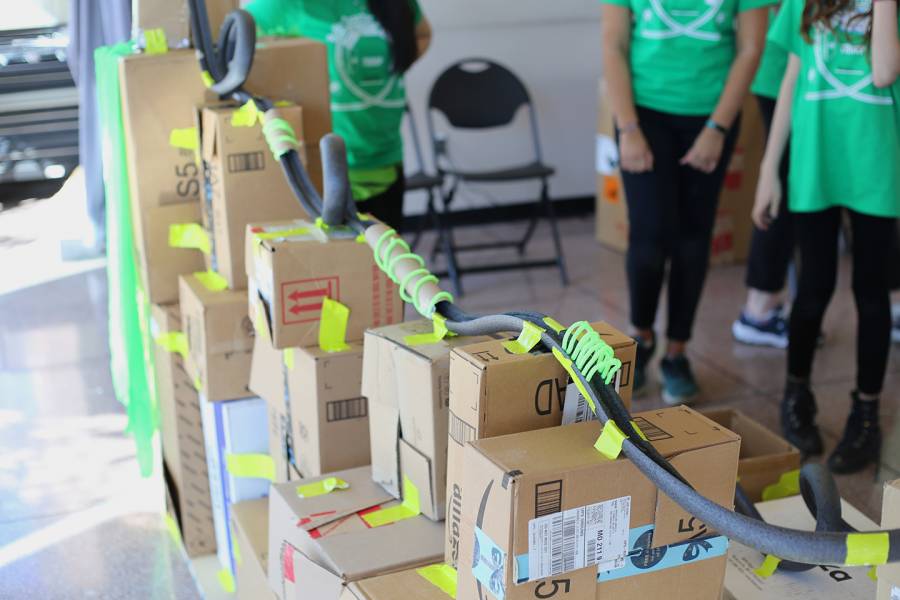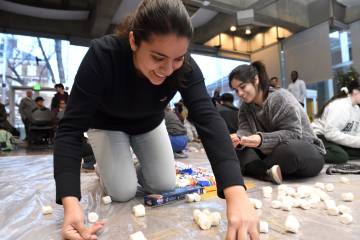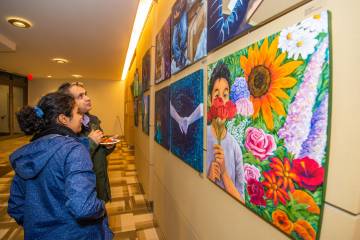More than 30 members of the Girl Scouts of Central Maryland spent a day at Johns Hopkins University last weekend thinking like engineers as they designed and built miniature roller coasters out of cardboard boxes, insulation tubing, pipe cleaners, cups, tape, and other everyday materials.
Through this fun and competitive activity, the middle school-aged troop members learned the basic physics of roller coasters. They worked with a dozen engineering students from Johns Hopkins to build five-foot tracks with as many "thrill" elements as possible: hills, tunnels, helixes, in-line twists, vertical loops, and banked curves.
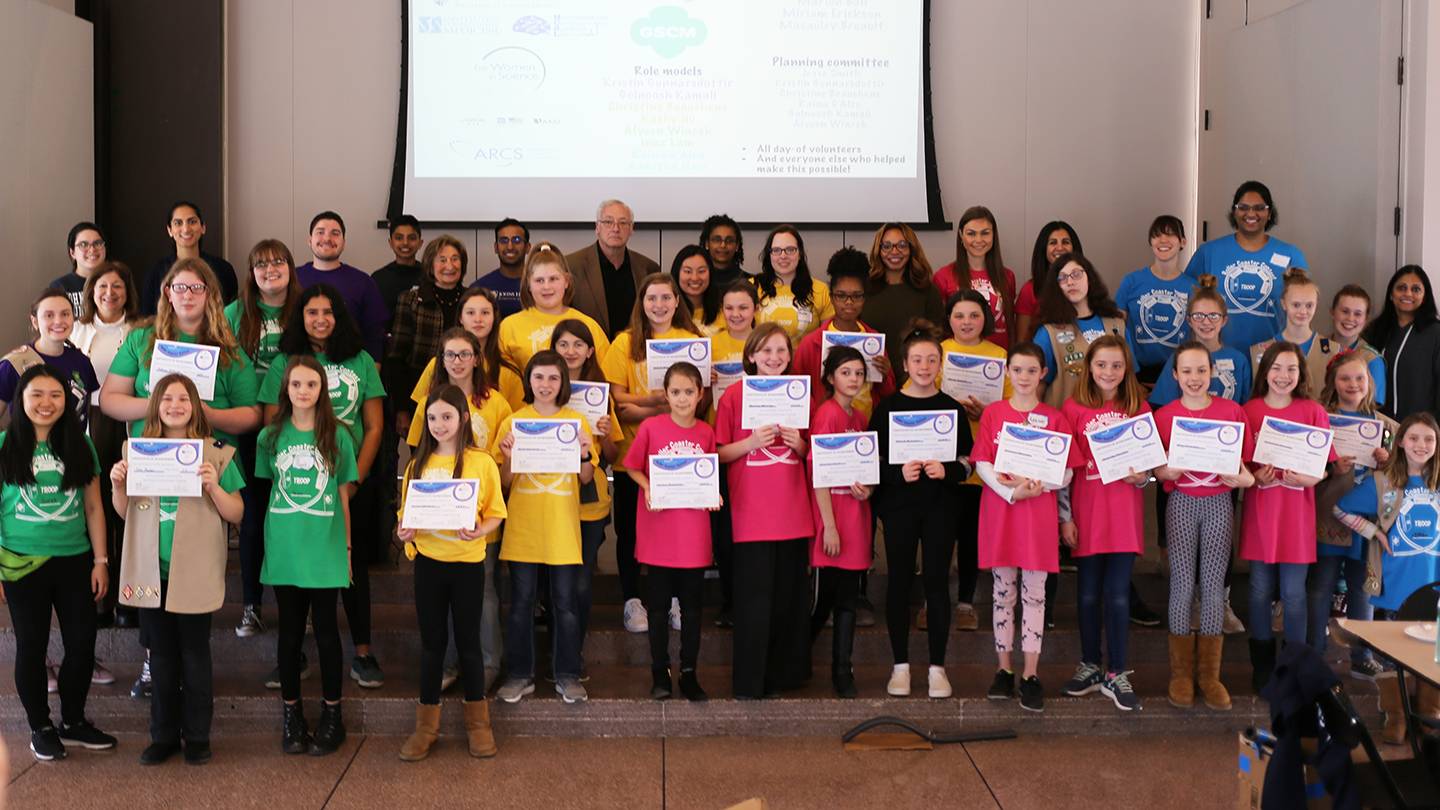
Image credit: Roger Stewart
At the end of the day, teams showed off their designs by launching a marble down the tracks they had just built.
Sridevi Sarma, associate professor of biomedical engineering and associate director of the Institute for Computational Medicine, hosted the event with the support of a L'Oréal USA Changing the Face of STEM mentoring grant.
"The goal of our Girl Scouts event is to provide a real example of how engineers solve problems in teams, but in an exciting way for girls between the ages of 10 and 12 years old," Sarma said. "They spend six hours together to brainstorm, design, and build these roller coasters."
The girls presented their final designs to the panel of judges, which included Raimond Winslow, a professor of biomedical engineering; Darlene Saporu, assistant dean for diversity and inclusion; Dennice Gayme, associate professor of mechanical engineering; Marion Ball, research industry specialist of healthcare informatics at IBM; Miriam Swydan Erickson, representative from the ARCS Foundation; and Macauley Breault, a doctoral candidate in biomedical engineering and the event's organizer.
"In this short amount of time, the girls experienced first-hand the engineering process—from brainstorming to testing—the importance of teamwork, the basics of how to present ideas, and the entanglement between creativity and critical thinking that ultimately manifested into tangible results—their roller coaster," Breault said.
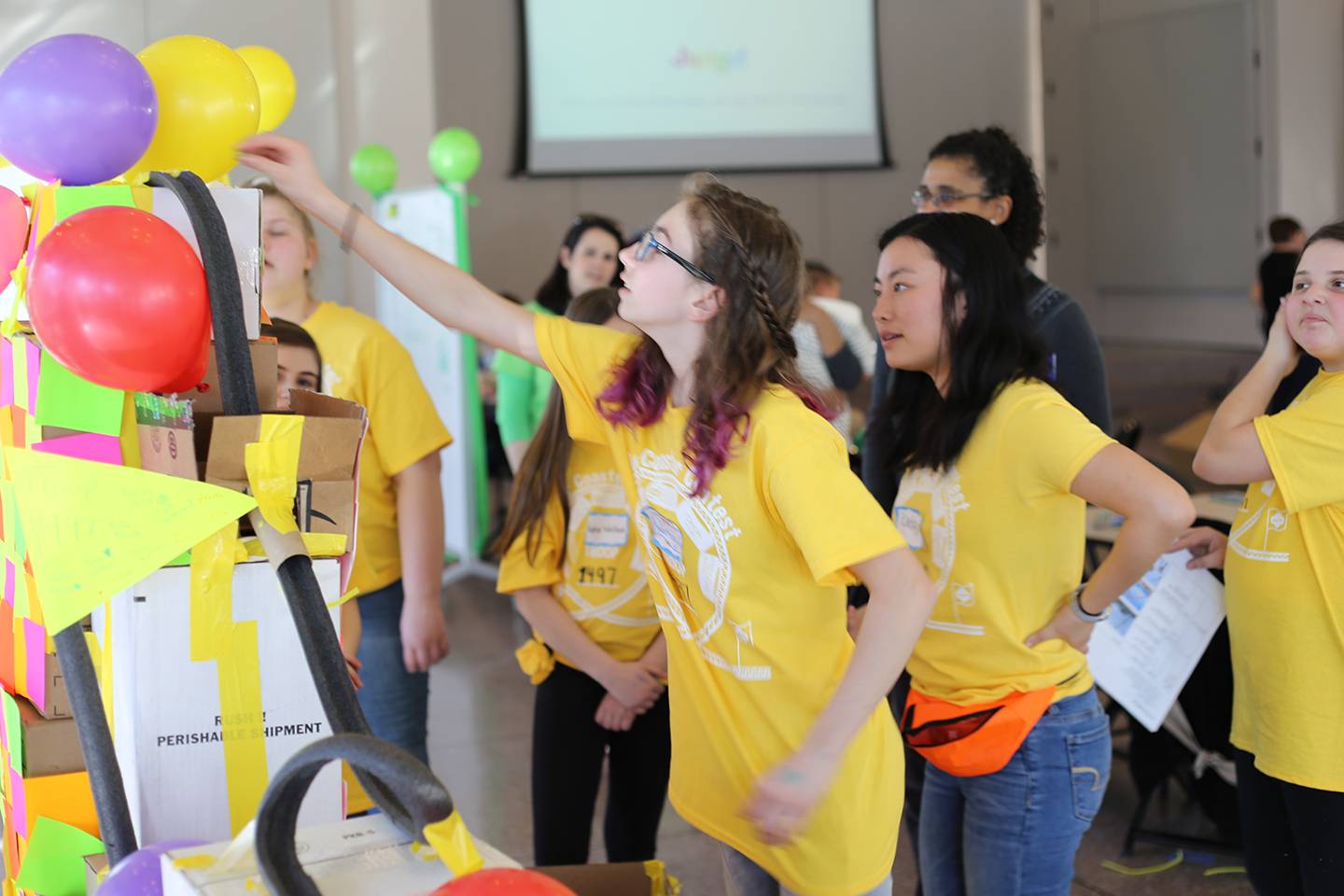
Image credit: Roger Stewart
Judges based their final scores on each team's presentation, creativity, and quality, as well as on which coaster would be the most fun to ride. In the end, members of Troop 2259 from Arnold, Maryland, were named the winners. The winners earned tickets to Six Flags America, where they can experience the physics of more than a dozen roller coasters in real life. All participating teams were given tickets to the Maryland Science Center.
"High school education today is becoming more and more focused in that students can choose different courses to help prepare them for careers of their choice," said Sarma. "For example, students can choose a math and science, engineering, or a medicine trajectory. Thus, it is critical to expose girls to STEM prior to high school."
Posted in Science+Technology, Community




